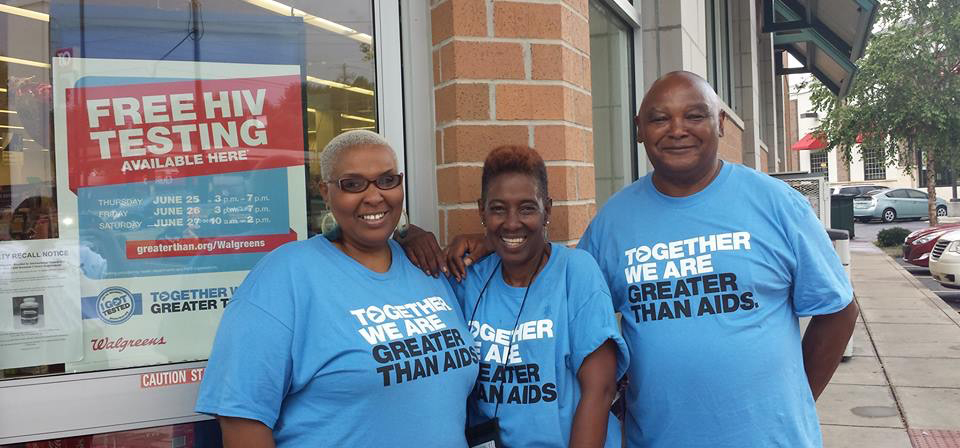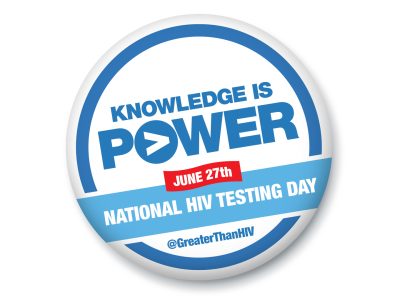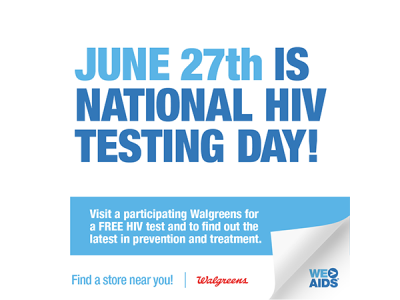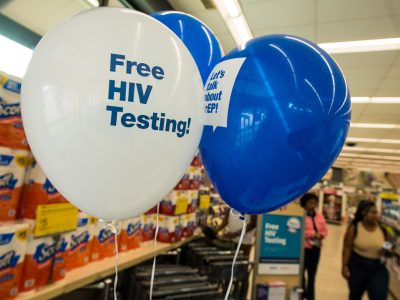Greater Than AIDS and Walgreens, the nation’s largest pharmacy, teamed again this past June with health departments and community-based organizations in more than 150 cities across the nation to provide FREE HIV testing and information. In the days leading up to National HIV Testing Day on June 27, more than 8,200 people learned their HIV status and were counseled about staying healthy regardless of the outcome.
This year’s activation saw unprecedented support. The NAACP helped get out the word in key markets. Alere North America, BioLytical Laboratories and the D.I.V.A. Foundation joined forces to donate more than 8,700 test kits.
At most locations, results were available on-site within minutes. Those who stopped by picked up a new informational resource from Greater Than AIDS and Walgreens, I Got Tested: What’s Next?, which helps people navigate next steps, whether they test positive or negative.
Social media posters from Georgia to California posted selfies, proudly showing off “I Got Tested” stickers and encouraging friends and family to follow suit.
“60 seconds well-spent!” raved one Instagram user.
The Greater Than AIDS and Walgreens partnership, which started in 2010, has provided more than 27,000 tests during these testing windows. In some areas, local partners work with Walgreens year round to offer testing.
Glen Pietrandoni, a Senior Director at Walgreens, said he‘s thrilled that momentum is building.
“People are realizing that HIV testing is a crucial part of maintaining good health and that they’re empowered to take positive action once they know their status,” Glen says.
Although the Centers for Disease Control and Prevention (CDC) advises that all Americans get tested for HIV as a routine part of medical care, many have never been tested or aren’t being tested as often as recommended, according to national surveys by the Kaiser Family Foundation.
Of more than 1.2 million people living with HIV in the United States, an estimated one in seven don’t know they’re infected, and only three in 10 are in on-going care and treatment.
That’s an important number, Hoff said, because treatments now exist that can reduce the risk of infecting someone else by 96 percent.
“The earlier the diagnosis,” she said, “ the longer a person can enjoy a healthy life.”



